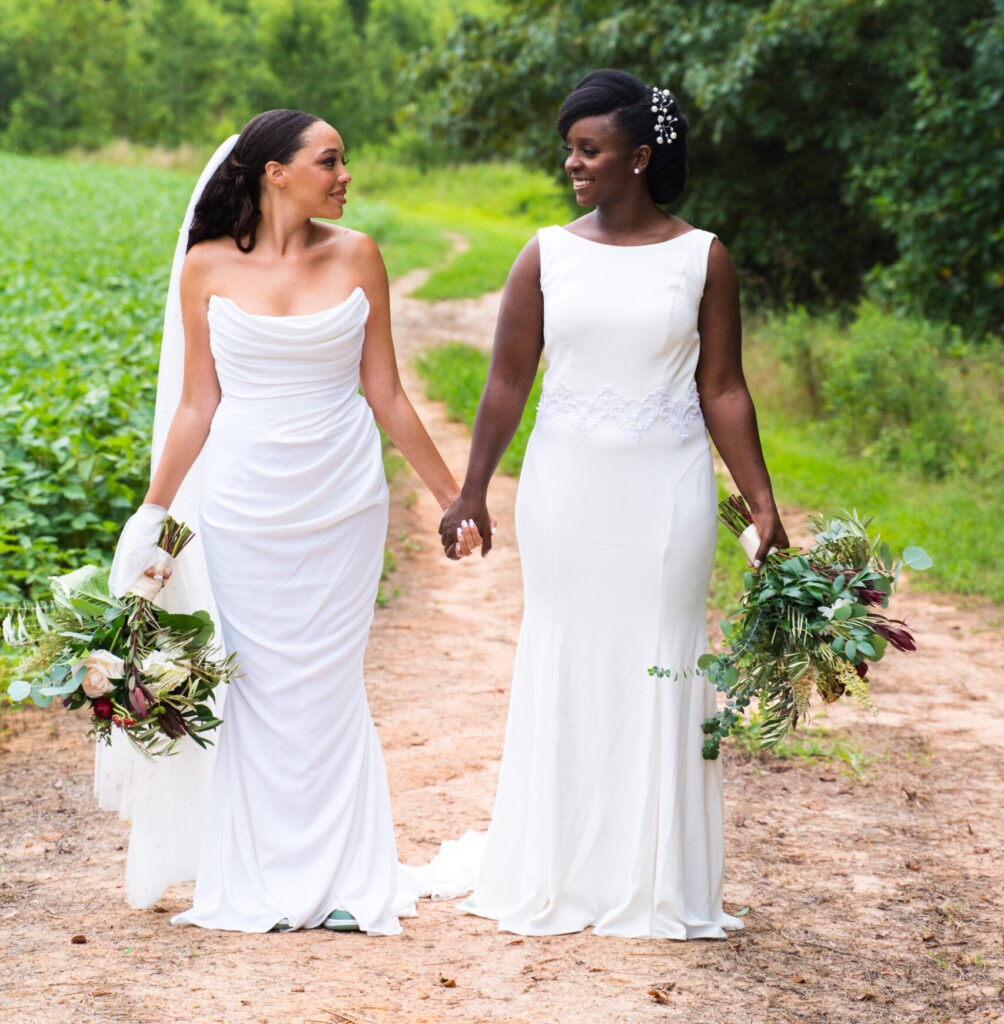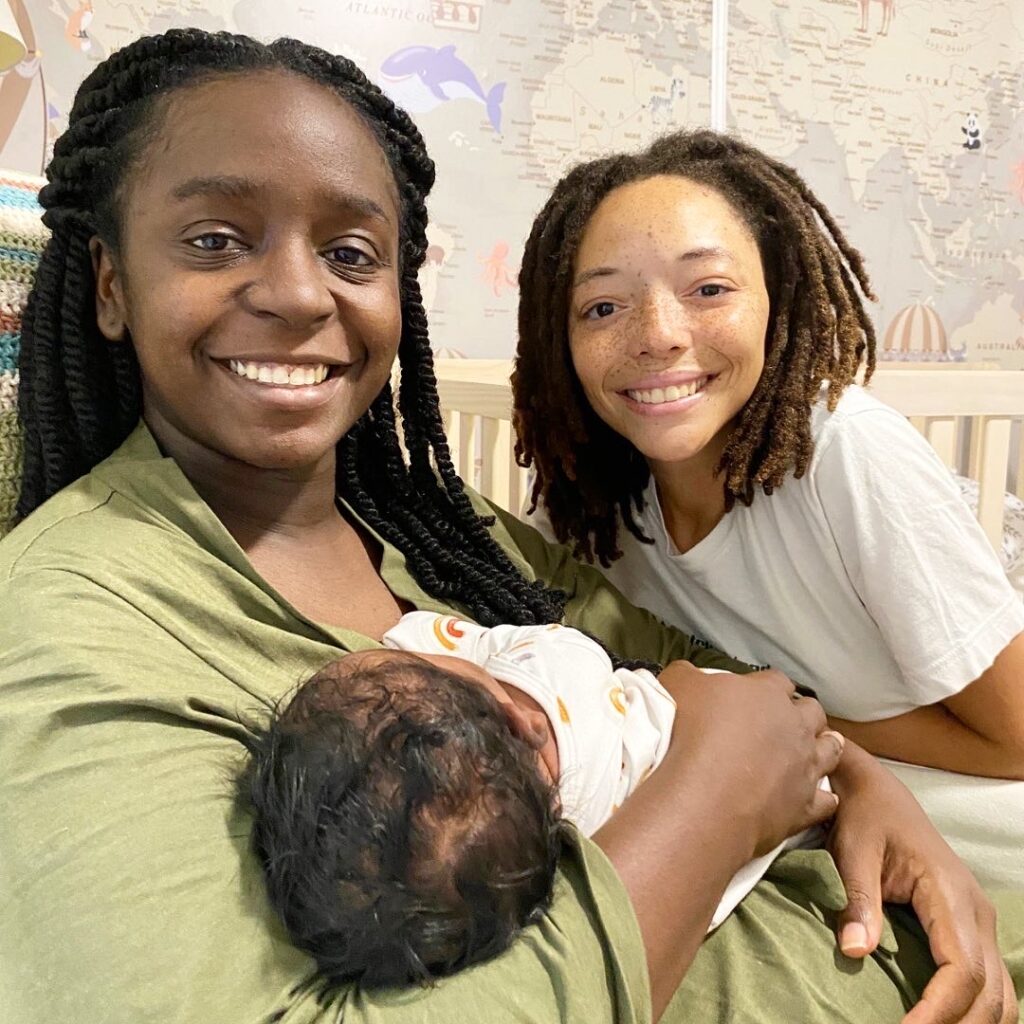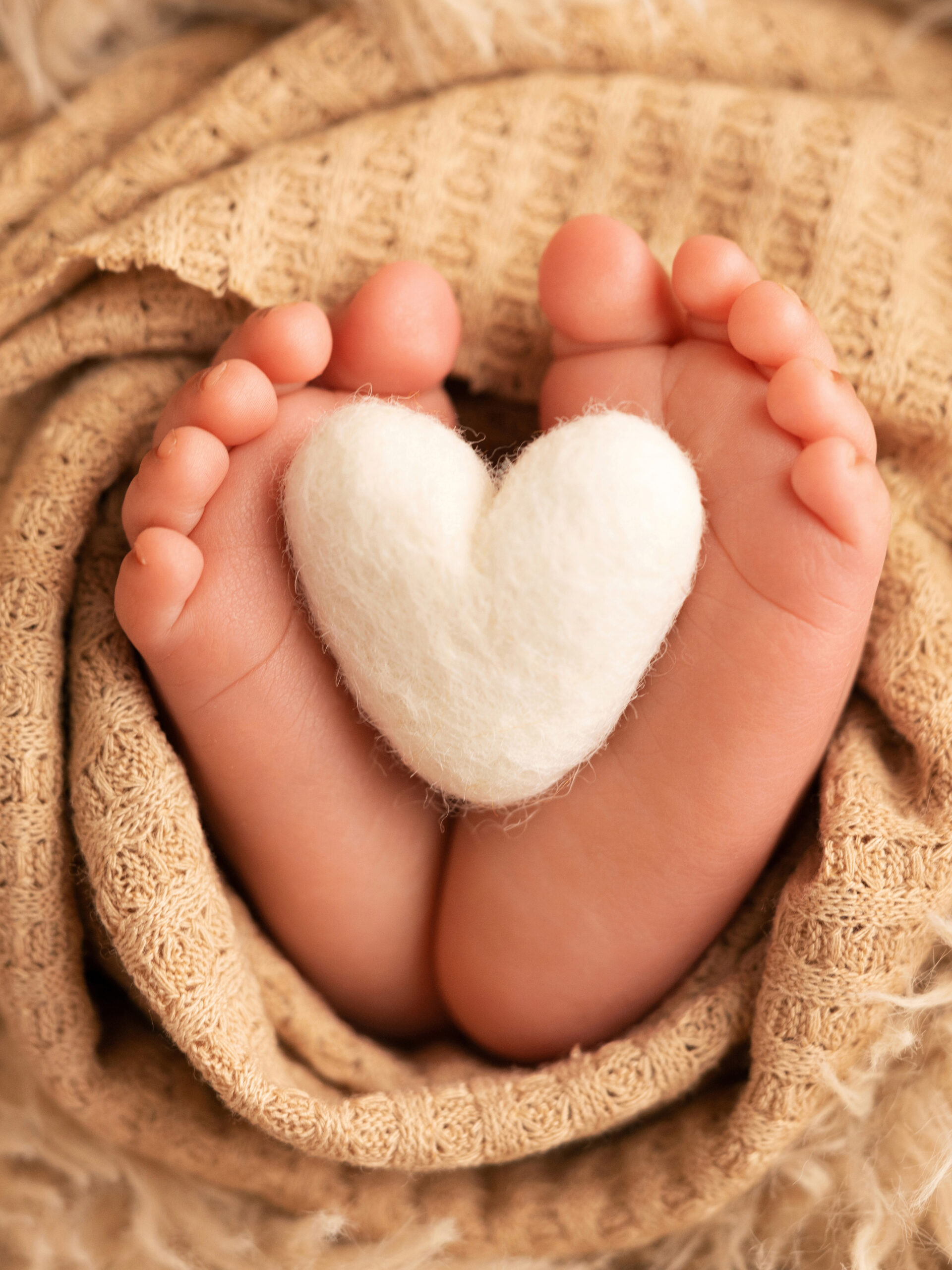My son rocks back and forth as he sits. With no music playing or prompting, he sways gently like leaves in a gentle breeze. Whenever he does this, I quickly tell anyone listening that he gets it from my side of the family. My sister, his auntie, rocks the same way when she knits, watches television or does any stationary activity.
Most times, whenever I draw this connection, my friends and family will laugh because, genetically-speaking, Davis doesn’t get anything from my side of the family.
When I began dating the woman who is now my wife, Mariah, I wasn’t thinking about how it would change my journey to motherhood. I had a lot more to reckon with at the time as someone coming to terms with her sexuality in her early 20s. As our relationship deepened and I began to see her as my life partner, new anxieties crept into my mind and seeded themselves:
Would we be able to have children and how?
Would wanting to carry children be too expensive as a queer couple?
Would adoption be even more inaccessible because of state-sanctioned homophobia?
How would we raise those children and protect them from bullying?
And, of course, one of the biggest questions: Would I be able to raise a child that wasn’t biologically mine?
That’s a question I never thought I’d need to ask myself. I was raised on baby dolls and “playing house.” As the eldest daughter of four, I was used to helping my parents with my younger siblings and I grew up craving to be a Mommy one day. In my teenage years, I’d gush over boys at school and run through hypotheticals of who I could see myself building a life and family with. When I began seriously dating, I’d consider what potential children with my partner-at-the-time might look like. Would they get my freckles and kinky hair? Or would they take after their would-be-father?

These childhood thoughts have been replaced by more serious considerations. Mariah had done far more research than me and knew that while IVF (in vitro fertilization) is what most people have heard of, we’d most likely opt for IUI (in utero fertilization). The former has a much greater success rate—and the price tag to match—because the egg is extracted from the birthing parent’s body, fertilized, and then re-inserted. Utero fertilization, on the other hand, is a lot more like turkey basting and involves directly inserting sperm into the uterus while the birthing parent is ovulating. The sperm still needs to travel to and fertilize the egg on its own, but the minimal invasiveness makes the procedure a lot easier on the body. And a lot cheaper, too.
All of the acronyms, procedures, and doctor’s visits weren’t what I envisioned for my journey to motherhood as a younger, more naive woman. The reality is many prospective parents need support getting pregnant, whether that be people who struggle with infertility, single parents, queer parents, transgender parents, older parents, and so many others. I come from a long line of women who suffered miscarriages and as an adult I learned to appreciate that there are many paths to parenthood. There shouldn’t be any shame or judgment in how we get there, so long as we show up lovingly and consistently in our children’s lives.
When my wife and I were ready to take the leap, there were many conversations to be had. Some were far easier than others. Who would carry our child? As two women with no signs of infertility, we had two uteruses to choose from unlike other couples, like queer men, who often depend on surrogacy. I quickly encouraged my wife to carry first as pregnancy always terrified me. She quickly agreed, as someone who had always looked forward to carrying a child, but asked me to carry our next child. I (begrudgingly) agreed.
Whose sperm would we use? We explored many routes and ultimately went with the more expensive option of purchasing sperm from a bank. Many friends and family joked about our decision to pick from a catalog but, as Black women who wanted a Black donor, the options were slim. Banks have notoriously rigid standards for medical history that often exclude donors from communities more disproportionately impacted by various health concerns. After months of searching and refreshing online databases, we finally found a match for us.
What would our future children call us? This was something I wrestled with the longest. Mariah expressed her desire to be called Mommy early on. Considering she’d compromised for me in other ways, I acquiesced but struggled to decide what I would be called.

My title means so much and so little but again I had to recognize that I’d been socialized to build an identity around my ability to be a Mommy. I imagined a world where I was the primary parent whom my children loved and needed more than anyone else in the world. What would it mean to be neither the birthing parent nor have the title I’d become oddly attached to?
After a lot of back and forth—and many lovingly vetoed proposals like Misa from Game of Thrones—I finally settled on Mama, a common choice for LGBTQ+ mothers. And now that our baby boy is here and healthy, I’ve realized that what he calls me doesn’t matter nearly as much as how much I pour into him. It’s the age-old nature versus nurture but I’ve had to ground myself in the reality that what makes a parent isn’t how much DNA you share but how much time, love, and care you invest into your little human.
Our son will be equal parts my wife and me because we are both committed to being present parents for him. He’ll have our shared love for music, his mother’s smile, and my passion for social justice. Through the books I read to him daily, we’ll bond over the way words can be a portal to alternate realities. And when people say, “Oh he must get that from you,” I’ll smile, nod and know that he does.
This feature is part of The Village Issue. Read more about the gamut of our most cherished relationships here.







